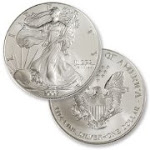“The story is told of Zusha, the great Chassidic master, who lay crying on his deathbed. His students asked him, "Rebbe, why are you so sad? After all the mitzvahs and good deeds you have done, you will surely get a great reward in heaven!"
"I'm afraid!" said Zusha. "Because when I get to heaven, I know God's not going to ask me 'Why weren't you more like Moses?' or 'Why weren't you more like King David?' But I'm afraid that God will ask 'Zusha, why weren't you more like Zusha?' And then what will I say?!"
Quoted from the Ask the Rabbi website
Somewhere on the inside, you have a pretty good picture of what you are and who you want to become. All by itself, how you handle money would be an important part of that picture, but money is funny stuff. How you earn it and how you handle what passes through your hands are inextricably intertwined with who you will become, in this world and in eternity.
We all want financial freedom, the point at which money is no longer a concern that consumes an unhealthy amount of our time and emotional energy. As the French say, “Money makes a good servant, but a bad master.” Rich or poor, money can be your servant or your master. The tests you will face are different on every unique rung on the ladder of your life.
How you define financial freedom is a reflection of your experiences, your unique God given ability, and the meaning that you choose to inculcate into that mixture we call life.
Is your behavior congruent with your vision of yourself? In retirement, I have chosen to spend more time and energy on my health than I did during my working years. The desired image of my physical self has changed over the last five years. Is eating another fast food grease bomb for breakfast or drinking my mandatory evening beer congruent with that new vision of myself?
Apply that kind of reasoning whenever you are faced with choice concerning your money. If you want to become a hedge fund manager who can write a $100 million check to endow a university hospital with a new research facility, how will you live your life—today. Carl Icahn started life as a kid in a tough working class neighborhood. To hear him tell the story, half of his boyhood friends ended up in reform school, but that wasn’t the end of the story. Icahn managed to put himself through Princeton with proceeds from playing poker with the members of a club where he had a part time job, pretty good training for his future life on Wall Street.
That isn’t your dream? OK. How would a successful businessman who wants to run a small, off the grid, organic farm chose to bless his neighbors and the world?
It isn’t about what you have. It’s about how you use what you have.
In the parable of the shrewd manager, Jesus observes, “Whoever is faithful with very little will also be faithful with much, and whoever is dishonest with very little will also be dishonest with much.”
Then he asks, “If then, you have not been faithful with worldly wealth, who will entrust you with true riches? And if you have not been faithful with the belongings of another, who will give you belongings of your own?”
Maybe, today you will face a decision point that will help define your future. Do I loan that friend enough money to help with the power bill? Not an easy question. Why can’t your friend cover his power bill? Would it be better to offer him a job, if that is in your power? When would it be correct to just say no?
This job or that job? Which career path is congruent with my vision of myself? Perhaps, becoming a husband who is willing to lay down his life for his family is more important than reaching self actualization as an artist. Perhaps in laying down his life for his family, he will reach a higher level, both in this world and the world to come than he could dream would be possible.
It’s your life. Large or small, you have been given a canvas, some brushes, and a selection of different colors. What you choose to paint, well that is your decision.
Saturday, November 18, 2017
Subscribe to:
Posts (Atom)

